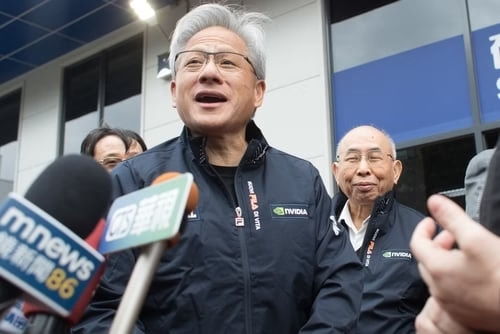Amazon and Microsoft are publicly backing the GAIN AI act, a newly introduced U.S. proposal restricting exports of advanced AI chips to China and other foreign markets until American demand is fully met. The move marks a pivotal moment for the U.S. technology sector, where competition for high-performance chips has surged and national security concerns are shaping policy decisions.
The GAIN AI act, formally known as the Guaranteeing Access and Innovation for National Artificial Intelligence Act of 2025, was introduced in the U.S. House of Representatives on October 31, 2025. The bill seeks to tighten export controls on companies like Nvidia, whose AI chips power everything from cloud infrastructure to military simulations.
U.S. Senator Jim Banks, who sits on the Senate Banking, Housing, and Urban Affairs Committee, said the legislation ensures “American-made technology supports U.S. security and economic strength before it benefits foreign adversaries.”
Microsoft confirmed its backing of the GAIN AI act in discussions with lawmakers, while Amazon Web Services representatives privately signaled support during Senate staff briefings, according to a report in the Wall Street Journal. AI startup Anthropic has also aligned with the initiative.
This growing coalition underscores how tech companies view the GAIN AI act as both a national security measure and a strategic move for the domestic AI ecosystem.
Bipartisan support builds around the GAIN AI act
The GAIN AI act is gaining traction across party lines. Senate Minority Leader Chuck Schumer has endorsed the bill, calling it essential for securing U.S. leadership in the global AI race while preventing future supply shortages that could disrupt defense and private-sector innovation.
The U.S. government’s stance reflects growing anxieties over how China could apply advanced AI chips to warfare, surveillance, and strategic command systems.
“As AI becomes more powerful, the risks to our national security become even more intense,” said Gina Raimondo, U.S. Commerce Secretary, in a recent policy briefing. She added that restricting chip exports under the GAIN AI act “ensures America’s enemies cannot use advanced AI technologies to gain a tactical military edge.”
The Commerce Department continues to coordinate with national security agencies on export controls through frameworks such as the Bureau of Industry and Security and guidance from the National Institute of Standards and Technology.
Earlier this year, the Trump administration unveiled its AI Action Plan, outlining standards to boost private-sector development and reinforce U.S. dominance in AI innovation. The plan avoided detailed rules for military deployment, a gap the GAIN AI act attempts to address indirectly through supply chain protection.
China and Russia’s military AI ambitions intensify U.S. concerns
The urgency behind the GAIN AI act stems from global geopolitical shifts. China’s People’s Liberation Army has openly emphasized “intelligentized warfare,” integrating AI into combat decision-making, logistics, drone coordination, and autonomous battlefield systems. Russia, meanwhile, focuses on AI-enabled command centers, hypersonic weapon modeling, and electronic warfare platforms.
According to defense analysts at FutureWerx, U.S. export controls are designed to slow these advancements by limiting access to high-performance semiconductors. The GAIN AI act strengthens these restrictions by effectively prioritizing U.S. inventory for domestic innovation, cloud infrastructure, and defense applications before any overseas delivery.
Nvidia pushes back as rules tighten
Nvidia, which controls roughly 80% of the global AI chip market, is aggressively opposing the GAIN AI act. The company has allocated $3.5 million to lobbying efforts against the bill, warning that stricter export limits could distort global semiconductor trade and reduce its international competitiveness.
In prior regulatory filings, Nvidia said the tightening of export rules could cost up to $5.5 billion in lost revenue. These financial strains come even as the company prepares to invest $500 billion into building U.S.-based AI server capacity over the next four years, in partnership with manufacturers like TSMC.
In 2024 and 2025, tensions escalated between Nvidia and the White House over export controls targeting China. While the GAIN AI act imposes new restrictions, the Trump administration simultaneously loosened rules on chip design software exports in July, lifting restrictions for companies such as Synopsys, Cadence, and Siemens.
These shifts reflect Washington’s attempt to balance economic interests with national security while navigating China’s decision to restrict rare earth shipments earlier this year which is an act that reignited trade tensions despite a temporary truce negotiated in Geneva.
Looking ahead: a defining moment for U.S. AI policy
For policymakers, the GAIN AI act represents an attempt to harden U.S. technological leadership at a time when AI is both an economic engine and a military priority. For tech companies, the act signals a future in which access to cutting-edge chips may be regulated just as tightly as traditional defense hardware.
With Amazon, Microsoft, and Anthropic backing it and Nvidia resisting fiercely as the GAIN AI act has become a focal point in the struggle to shape the next decade of global AI power.











